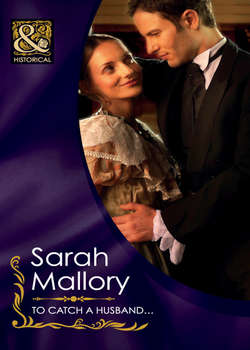Читать книгу To Catch a Husband... - Sarah Mallory - Страница 5
ОглавлениеAUTHOR NOTE
I live in the north of England, high on the Pennines, in an area of outstanding natural beauty. When I am out walking it is not uncommon to come across huge stone blocks tumbled amongst the trees in the bottom of some remote wooded valley—the remains of an early spinning mill. These mills were built more than two hundred years ago, when the industrial revolution was just beginning and water was needed to power the new machines used to spin wool, linen and cotton.
Inventions like the spinning mule and Arkwright’s water frame meant that people could spin better, faster, and produce more yarn than ever before to supply a growing market. The entrepreneurs who built and managed the mills were adventurers, working at the forefront of technology—and the innovations were as startling and exciting as anything to come out of Silicon Valley.
These new industrialists were hailed as heroes, adventurers, and I have long wanted to write about them. Daniel Blackwood is my first hero from this new breed of tough, resourceful industrialists. London Society of the 1780s doesn’t quite know what to make of this fiercely independent self-made man—and neither does my heroine, Kitty. I had great fun putting these two together and creating the battle of wills that ensued before they realised they were made for one another—I hope you enjoy their journey.
Kitty and Daniel’s story led me to some of the darker aspects of late-eighteenth-century society. The Abolition movement was gaining pace, with Anti-Slavery Societies being set up around the United Kingdom. There was certainly one in Sheffield at the time of my book, and 8,000 people signed a petition from the people of Sheffield to Parliament in 1793, calling for an end to the Slave Trade. However, to the best of my knowledge there was never a West Riding Anti-Slavery Society—an invention of my own for the purposes of the plot.
This was also an age when children were often exploited, but some mill owners were against this—for example Robert Owen, who built the New Lanark Mills in Scotland, introduced the revolutionary idea that children should not be allowed to work in the mills before the age of ten. For the sake of historical accuracy I could not remove children altogether from Daniel’s mills, but as a forward-thinking employer he does have schools and nursery buildings for the children of his workers and the apprentices.
Kitty and Daniel are a forward-thinking couple, and have very liberal views, but they are based on real characters—people who really did strive to improve the lot of the factory workers, and who fought for the abolition of the slave trade even though it was a risk to their own livelihood. The real heroes of the time.
